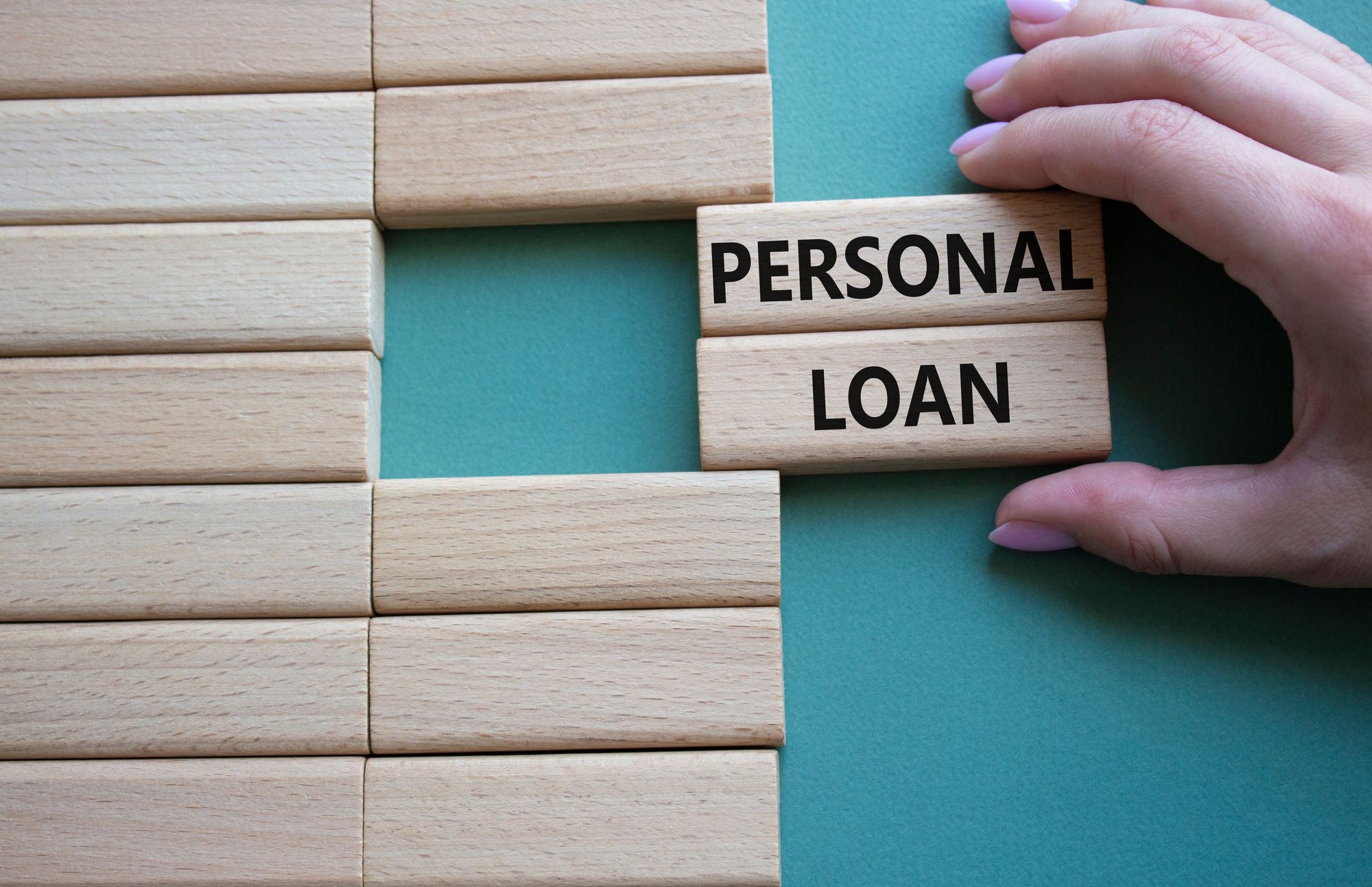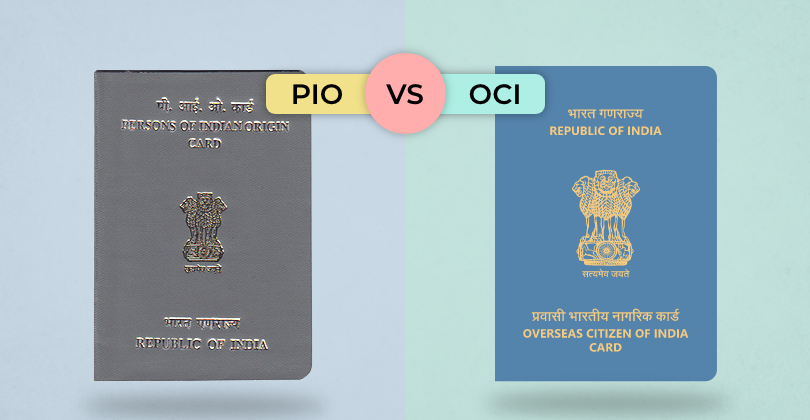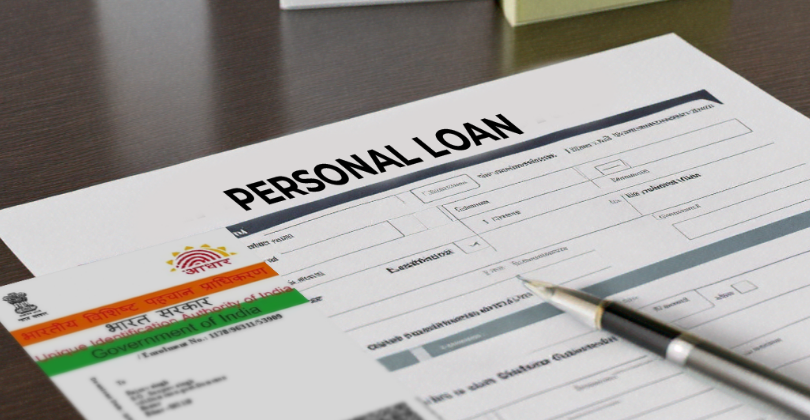Are you of Indian origin and living abroad? You've probably come across terms like PIO and OCI. These cards offer different benefits, but it can
In today's fast-paced world, personal loans have become a popular financial tool for individuals to meet their immediate monetary requirements—whether a dream vacation, home renovation, medical emergency, or any other personal need.
However, before applying for a personal loan, it is essential to assess your personal loan eligibility to improve your chances of approval and secure favourable terms. Fortunately, the digital age has made it easier than ever to check your personal loan eligibility online.
In this comprehensive guide, we walk you through the process of evaluating your eligibility, understanding the factors that influence it, and enhancing your chances of securing a personal loan.
How Personal Loan Eligibility is Calculated
Before delving into the specifics of personal loan eligibility, borrowers must understand how lenders calculate it. Personal loan eligibility is primarily determined by the lender's assessment of your creditworthiness, which involves a detailed evaluation of your financial history and current financial situation.
Here's a breakdown of the key factors that lenders consider when calculating your eligibility:
-
Credit Score: Your credit score is a critical factor in determining your personal loan eligibility. It represents your creditworthiness and financial responsibility. Lenders typically prefer applicants with higher credit scores, as they are considered less risky. A good credit score can significantly improve your chances of approval.
-
Income: Your income level plays a pivotal role in your eligibility. Lenders want to ensure you have a stable source of income to repay the loan. Typically, a higher income can positively impact your eligibility.
-
Employment History: Lenders may assess your employment history to gauge job stability. A longer and more stable employment record can enhance your eligibility.
-
Debt-to-Income Ratio (DTI): DTI is the ratio of your monthly debt obligations to your monthly income. Lenders use this metric to determine whether you can manage additional debt. A lower DTI ratio is preferable, as it signifies a healthier financial situation.
-
Existing Debt: Lenders will consider your current debt obligations, such as credit card balances, other loans, and outstanding EMIs. High levels of existing debt can lower your eligibility.
-
Age: Your age can also influence your eligibility. Younger applicants may face challenges due to limited credit history, while older applicants may encounter restrictions based on age and retirement plans.
What Factors Affect Personal Loan Eligibility?
Now that we have outlined the components of personal loan eligibility, let us understand the factors that can affect it:
-
Credit History: Your credit history is a significant factor. A consistent history of timely payments and responsible credit management will improve your eligibility.
-
Loan Amount: The loan amount you apply for can impact your eligibility. Lenders may have different criteria for various loan amounts, with larger loans requiring stronger eligibility factors.
-
Interest Rates: Lenders may offer different interest rates based on your eligibility. Stronger eligibility often results in more favourable interest rates.
-
Loan Tenure: The duration of the loan can influence your eligibility. Shorter tenures may have higher eligibility requirements, while longer tenures could have less stringent terms for approval.
-
Lender Policies: Each lender has its own set of eligibility criteria, which may vary. It is essential to research and compare lenders to find one that aligns with your eligibility status.
-
Co-applicant or Guarantor: If your eligibility is borderline, asking a co-applicant with a stronger financial profile or a guarantor to sign off can boost your chances of approval.
Features and Benefits of Personal Loans
Before diving into the eligibility criteria and the application process, let us briefly discuss the features and benefits of personal loans:
-
Unsecured Loans: Personal loans are typically unsecured, meaning you do not need to provide collateral. This reduces the risk of losing assets if you are unable to repay the loan.
-
Flexible Use: You can use a personal loan for various purposes, from consolidating debt to financing a vacation or a wedding.
-
Quick Disbursement: Personal loans usually have a quick approval and disbursement process, making them suitable for emergencies.
-
Fixed Interest Rates: Most personal loans come with fixed interest rates, allowing you to budget effectively with consistent monthly payments.
-
Repayment Tenure: You can choose a repayment tenure that suits your financial situation, ranging from a few months to several years.
How to Apply for a Personal Loan
After discussing the basics of personal loans, let us explore the steps involved in applying for one:
-
Research Lenders: Start by researching and comparing lenders to find the one that offers terms and conditions aligned with your financial situation and eligibility.
-
Check Eligibility Online: Use online eligibility calculators provided by most lenders to get an estimate of your eligibility. This will give you a preliminary idea of your chances of approval.
-
Gather Documents: Prepare the necessary documents, including identity proof, address proof, income proof, and bank statements.
-
Fill Out the Application: Complete the online application form provided by the chosen lender. Ensure accuracy and transparency in providing information.
-
Submit Documents: Upload the required documents per the lender's instructions.
-
Verification and Approval: The lender will verify your documents and assess your eligibility. If you meet their criteria, you will receive approval.
-
Loan Disbursement: Upon approval, the lender will disburse the loan amount to your bank account.
What Are the Eligibility Criteria for Obtaining a Personal Loan
The eligibility criteria for personal loans can vary from lender to lender, but there are some common requirements that most lenders consider:
-
Age: You must be at least 21 years old to apply for a personal loan. Some lenders may have a higher minimum age requirement.
-
Citizenship: You should be a citizen or resident of the country where you are applying for the loan.
-
Employment: For salaried individuals, a stable job with a minimum work experience of 1-2 years is often required. Self-employed individuals may need to provide proof of their business's existence.
-
Income: Lenders typically have a minimum income requirement. This varies based on your location, the lender, and the loan amount.
-
Credit Score: A good credit score (usually above 650-700) significantly enhances your eligibility.
-
Existing Debt: Your existing debt obligations, including credit card balances and other loans, should not be excessively high.
How to Improve the Chances of Approval for a Personal Loan
To enhance your chances of getting approved for a personal loan, consider these strategies:
-
Maintain a Good Credit Score: Regularly check and improve your credit score by paying bills on time and managing your credit responsibly.
-
Reduce Existing Debt: Pay off outstanding debts to lower your DTI ratio and show you can manage additional debt.
-
Choose the Right Loan Amount: Apply for a loan amount that aligns with your income and ability to repay.
-
Add a Co-applicant or Guarantor: If your application is weak in light of the lender’s defined eligibility criteria, consider adding a co-applicant with a stronger financial profile or a guarantor.
-
Stable Employment: Maintain a stable job and employment history to demonstrate job security.
-
Correct Information: Ensure the information provided in your application is accurate and up-to-date.
📗 Related reading- How Do You Improve Your Loan Eligibility?
Conclusion
Checking your personal loan eligibility online is a crucial first step when considering a personal loan. Understanding how eligibility is calculated, the factors that influence it, and the steps to improve your chances of approval can help you secure a loan that meets your financial needs.
Remember that different lenders have different eligibility criteria, so it is essential to research and choose the one that aligns with your financial situation and goals. By following the tips and strategies outlined in this guide, you can navigate the process with confidence and secure a personal loan that helps you achieve your financial objectives.
Frequently Asked Questions
Yes, you can apply for a personal loan with a lower salary, but your eligibility may be affected. Lenders often have minimum income requirements, so it is essential to research and choose a lender that accommodates your income level.
Your current debt status, including outstanding loans and credit card balances, can impact your eligibility. Lenders may be reluctant to approve a loan if your existing debt obligations are too high, as it indicates a higher risk of default.
Yes, self-employed individuals can apply for personal loans. However, they may need to provide additional documentation, such as business financials, to demonstrate stability.
Eligibility criteria for salaried employees typically include a stable job with a minimum work experience of 1-2 years, a minimum income level, and a good credit score. Specific requirements may vary among lenders.
AUTHOR
KreditBee As a market leader in the Fintech industry, we strive to bring you the best information to help you manage finances better. These blogs aim to make complicated monetary matters a whole lot simpler.







